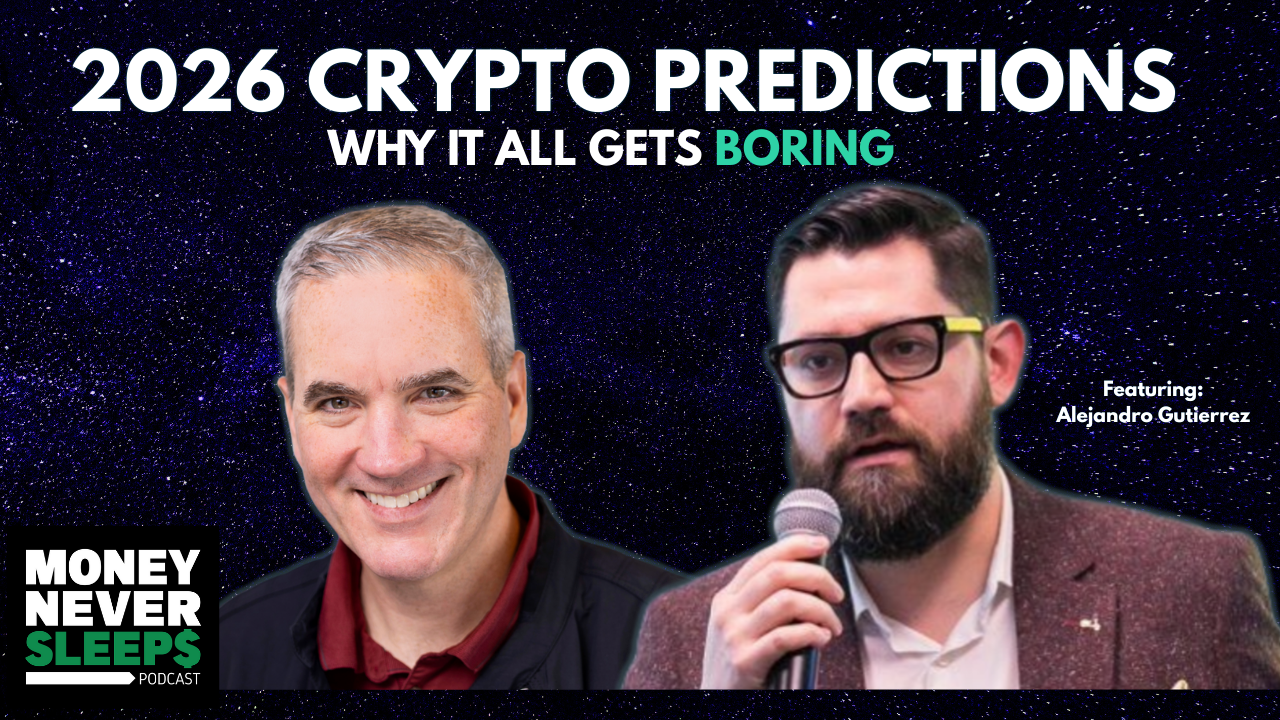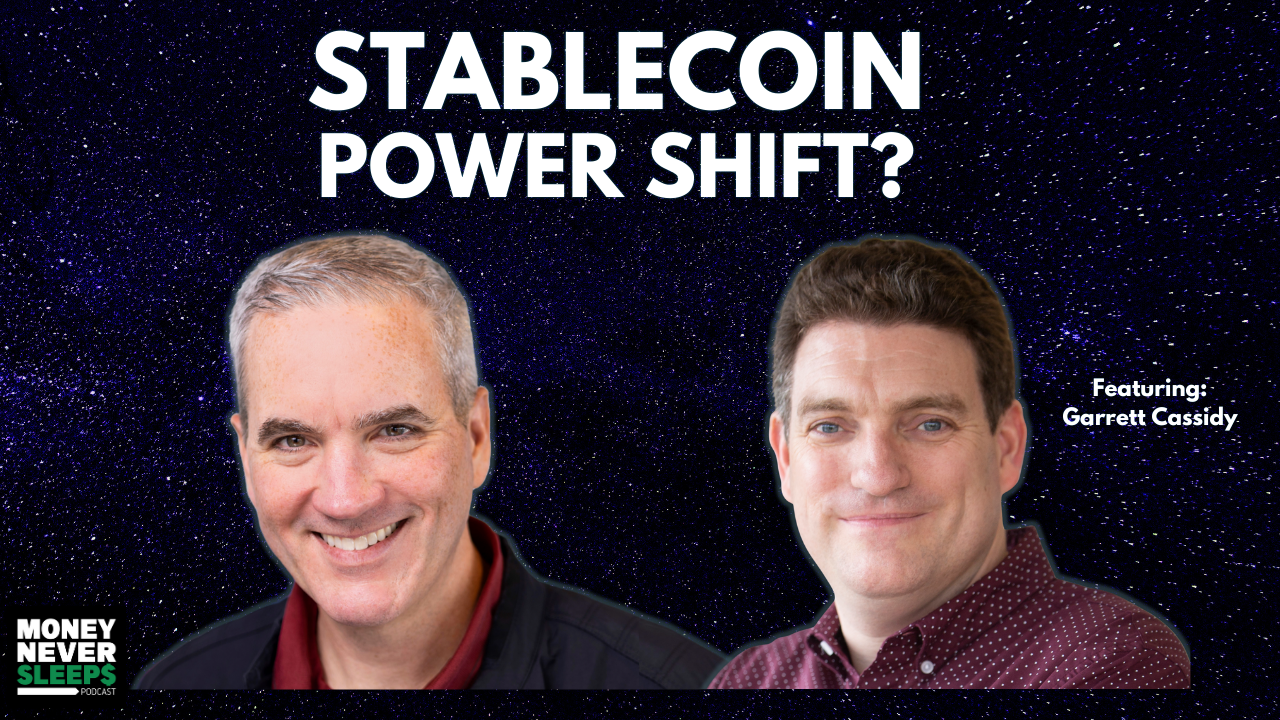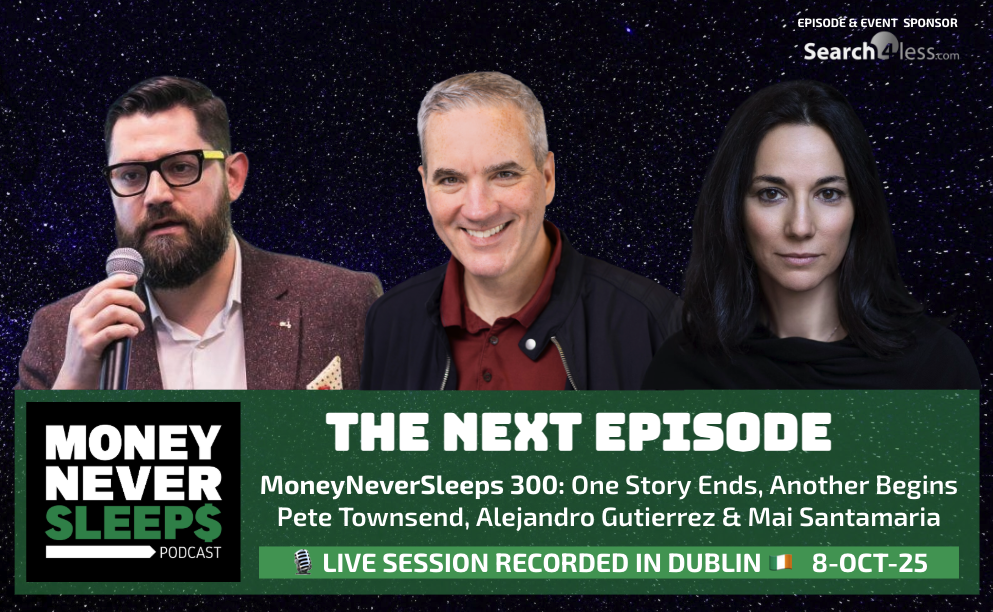085: Money Talks #13: Finn Murphy - Seed Investing in Ireland


Finn Murphy from Frontline Ventures joins the show to talk about a people-centric view to investing in early stage startups, what it takes to scale Irish startups to nine-figure revenue levels, what typically lures Irish startups to the UK, US or Continental Europe, and how his own competitive drive works well in venture capital.
This episode is kindly sponsored by Ireland’s fintech and financial services recruitment specialists, Top Tier Recruitment. If you would like an intro to the team at Top Tier Recruitment, please click here.
In this episode, Pete Townsend talks to Finn Murphy from Frontline Ventures, a Dublin-based B2B SaaS venture firm investing in Europe and the US. Finn is a board member or observer on Frontline investments such as Pathfinder, Umba, Cloudsmith, Modulz, Swyg and Evervault, among others.
In a country of five million people like Ireland, the venture capital community is about the size you would expect - relatively modest. However, with multinational finance, pharmaceutical, medtech and broader technology companies all progressively choosing Ireland for their European operations going back to the 1980’s, and a well-educated workforce, there’s a much larger talent base in Ireland than you would expect for a country of five million people. So, what happens when the risk takers with a few years under their belts in these multinationals get that entrepreneurial itch? Well, although there are definitely other factors, we’ve always pointed to these quasi spin-outs from multinationals that are sometimes no more than one woman or man saying, "I’ve found a problem worth solving, and I think there’s a big enough market for it, so I’ll give it a shot".
Ireland definitely has a larger startup ecosystem than you’d expect for a country of five million people, and like any startup ecosystem, it needs seed funding. Finn has been quite transparent about what he looks for in pre-seed-stage companies, specifically in his specialty of B2B SaaS, and we covered his framework for founders on what to expect from VCs investing at the pre-seed level in episode 68. We go quite a bit deeper in this episode, and cover:
- The tongue-in-cheek view on assessing founder ambitions - "We had this internal joke at Frontline that you just find any of the [Irish] founders who had tried to raise money from US venture funds, and write them a check because you had a good benchmark on the scale of their ambition."
- The actual view on founder ambitions - "We're looking for people with that world-beating view of 'I have just as much of a shot as anyone who’s building one of these real break-out companies' [anywhere else in the world]."
- On his comfort level - "We feel a lot more comfortable when we’re assessing people and high level markets than when we’re tearing apart financial models."
- On his approach to identifying founders - "You’re trying to see the world today as clearly as you possibly can, and then look for people who have recognized something that everyone else has missed."
- On valuing businesses - "People always ask me 'how should I value my business?', but I ask “how much money do you need to be successful, and what is success?”. If success is getting to cashflow breakeven, then your business probably isn’t for us, but if it’s getting to strong growth metrics and a strong product proposition that enables you to raise another round of financing at a 2-3x markup, then it’s 'how much capital is required for you to do that?'. Whatever that number is drives the valuation."
- On scaling startups staying in Ireland - "The biggest rate-limiting factor on scaleups staying in Ireland is that there are a decent amount of people in Ireland that know how to operate a business going from $1mn-10mn in revenue, a few that know how to take a business from $10mn-100mn, and barely any that know how to go from $100mn-1bn in revenue."
- On the specific challenges of scaling - "Eventually we'll get a generation that takes their chances and brings in those execs and train them here or bring them to Ireland full time, but [talent] is the hardest thing to overcome for these companies eventually moving their center of gravity to the US. Do you move these incredible people to the Ireland, or do you move your company decision making apparatus to the US, and often its the latter."
- On getting your repetitions in - "You need to listen to tons of nonsense to hear a couple of good ideas. Every founder has a good reason for starting their business, but not every business is well suited to venture."
- On finding the needle in a haystack -"You have to keep talking to people, or you won't have a benchmark to measure someone against the last person you spoke to. When you meet an amazing entrepreneur, you need to be able to recognize it within the first 30 minutes of taking to them. That’s only possible with tons and tons of experience and time [with talking to entrepreneurs]."
- On being optimistic - "With all of these companies, there are a million reasons why they could fail, but you need that optimism and imagination to think about what things could look like if all of the cards fell in their favor."
To listen to more, please visit https://www.moneyneversleeps.ie/ for all of our other episodes. Also, follow us on Twitter @MNSShow for updates and more information.































